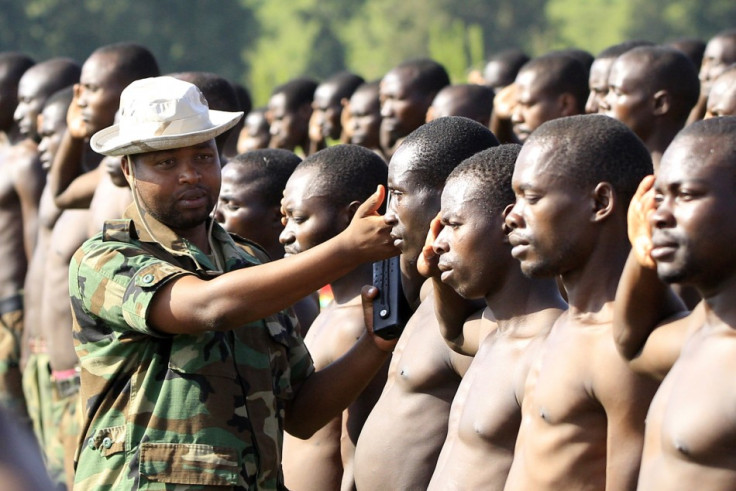M23 Rebel's Reign of Terror, Rape and Murder in DR Congo 'Aided by Rwanda'
Rwanda's President Paul Kagame rebuts claims that Kigali supports rebellion across Congolese border

Rwanda is actively supporting the M23 rebels in DR Congo despite the group being responsible for a series of murders, rapes and forced recruitment of children, a report by a respected human rights group has alleged.
Since March, the M23 has established a reign of terror in areas of eastern DR Congo with the assent and cooperation of the Rwandan government in Kigali, according to a report by Human Rights Watch (HRW).
"Not only is Rwanda allowing its territory to be used by the abusive M23 to get recruits and equipment, but the Rwandan military is still directly supporting the M23," said Daniel Bekele, Africa director at HRW.
"This support is sustaining an armed group responsible for numerous killings, rapes and other serious abuses."
At least 44 people have been summarily executed and 61 women raped by rebels in the last few months, HRW added.
A 12-year-old girl told HRW that she was raped as she was buying sugarcane in a field in the Rutshuru area.
"I saw a [M23] soldier. I started running, but I tripped and fell," she said, according to the report.
"The soldier caught up with me and said he would kill me because I tried to flee. I stopped then because I was very scared. Then he raped me. I cried out, but he closed my mouth.
The rights watchdog said that M23 recruits soldiers, often forcibly, in Rwanda and in Congo, regardless of the recruit's age.
"A 15-year-old Rwandan said he and three other young men were promised jobs as cow herders in Congo, but when they got to Congo were forced to join the M23," the report read.
"They were given military training by Rwandan officers in Congo and told they would be killed if they tried to escape."
A 62-year-old man was reportedly shot dead because he refused to hand his sons over to the rebels.
Rwanda supply line to rebels
Besides providing military training, Rwanda also supplies the M23 with troops, weapons, ammunition, food and other provisions, HRW said.
The M23 rebellion began operations in April 2012 after a group of Congolese army mutineers claimed that a peace dea; with the government had not been honoured.
Its members are mainly former soldiers of the National Congress for the Defence of the People. The majority of them are Tutsi survivors of the Hutu genocide in Rwanda in 1994.
In 2012, the M23 advanced into DR Congo and briefly occupied the city of Goma before withdrawing to territories near the Rwandan border.
The situation in the area is worsened by the presence of opponent Congolese Hutu militia groups which are also responsible of abuses and killings, HRW said.
Rwanda's President Paul Kagame has consistently denied allegations that his government supported rebels.
"For the past 17 years, the Rwandan army has repeatedly deployed troops to eastern Congo and backed abusive proxy forces responsible for war crimes," Bekele said. "As in the past, Rwanda denies it's supporting the M23, but the facts on the ground speak for themselves."
HRW said the report was based on more than 100 interviews with local villagers and M23 defectors.
M23 spokesman Kabasha Amani dismissed HRW as a "very partisan" organisation.
"It's not a report, these are just rumours," Amani said. "We have grown used to this. It isn't the first time they've said these things."
M23 leader Bosco Ntaganda has been taken into custody by the International Criminal Court in The Hague, after his faction was beaten by a separatist M23 faction led by Sultani Makenga.
© Copyright IBTimes 2024. All rights reserved.






















